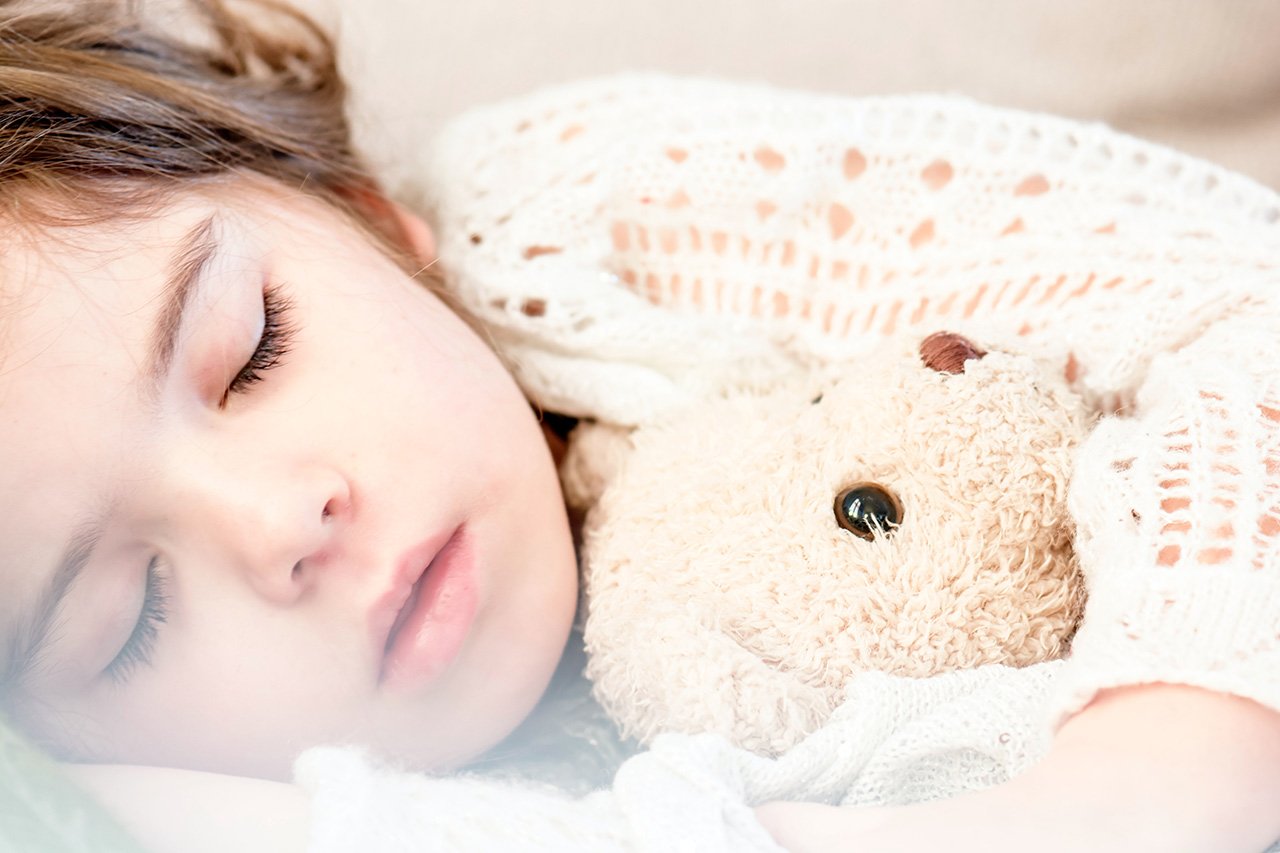
Next week, we enter Sleep Awareness Week. What better time to discuss the significance of sleep on children’s health and well-being? Children need different amounts of sleep at different ages. A good night’s sleep is essential for developing minds. When children sleep well, they are better learners and more attentive students. Healthy sleep promotes a positive attitude, improved attention, a better memory, and more energy for physical activity.
How Much Sleep Do Children Really Need?
As infants, children need to sleep between 12 and 16 hours per day. Children between the ages of one and two need between 11 and 14 hours of sleep each day. Sleep has important effects on young children’s physical and cognitive growth. Three- to five-year-olds need 10-13 hours of sleep and benefit highly from napping, which helps them to form and retain memories and develop the ability to pay attention. It also supports the development of motor skills. Six- to 12-year-olds need 9-12 hours of sleep. During their teenage years, children’s sleep needs are closer to those of adults – between 8 and 10 hours per night. Seems simple enough, right? According to the Centers for Disease Control and Prevention, 60% of middle schoolers are short on sleep, and 70% of high school teens do not get enough sleep.
What Happens When a Child Goes Without Healthy Sleep?
As many doctors say, good health begins with proactive, preventative lifestyle choices. In addition to eating well, sleep plays a critical role in keeping people of all ages healthy. Children who suffer from poor sleep on a repeated basis are at a higher risk for depression, anxiety, and behavioral problems. While putting children to bed can sometimes be difficult for parents, most parents are familiar with the crankiness and hyperactivity children tend to display after a poor night’s sleep. As children become teens, inadequate sleep is linked to deeper mental health and self-esteem issues. On a physical level, children who do not sleep enough face a series of health-related risks, including high blood pressure, diabetes, allergies, low immunity, and obesity.
Restlessness and difficulty falling asleep are issues that adults can likely relate to and are certainly problems that children face when trying to fall asleep. Beyond these issues, disturbances such as nightmares, sleep apnea, sleep talking, and sleepwalking can make it difficult for a child to fall and stay asleep. If any of these issues occur frequently, it is worth mentioning them to a child’s doctor and monitoring them as a child grows up. Most of the time, a child will outgrow a sleep disturbance, and parents can help by ensuring that a child’s sleeping area is safe, free of stairs or sharp edges, and well-ventilated with clean air.
How To Prepare a Child for a Good Night’s Sleep
Helping children transition from day to night may be more of an art than a science. What works for one child may not work for another, and even if a child sleeps soundly, they may have erratic nights from time to time. With that said, there are several proven methods that support a healthy night’s sleep. Here are some ideas:
- Stick with a consistent bedtime – every night. This is particularly important during school holidays and on weekends. The more consistent you are, the more your child will feel ready to sleep when it’s time to wind down.
- Keep screens far away from the bed. Whether it’s near bedtime or early in the day, do what you can to keep a child’s sleeping area screen-free.
- Cool the room down at night. If possible, run a fan or set the thermostat to a slightly lower temperature at night than during the day. Cooler air supports healthy rest.
- Keep light minimal after bedtime. Close the blinds or curtains in a child’s room every night. If they are afraid of the dark, use a low-lumen nightlight. You might even let your child turn their nightlight on each night so that they feel empowered and in control of their space.
- Don’t feed a child before bed. A child’s last large meal should occur at least three hours before hitting the mattress.
- Make bedtime rituals special. Brushing teeth, changing clothes, washing up, and snuggling with parents are all sweet activities that help a child anticipate and look forward to their bedtime. These small acts become a ritual when you do them every day.
Active, well-balanced days lead to healthy sleep. An excess of lying around, drinking caffeine, eating sugar, or playing with screens can all interfere with a child’s healthy sleep. If your child is struggling to fall asleep and you’re doing everything you can to promote a healthy bedtime ritual, consider how their daily activities contribute to their overall energy schedule.
While they may not seem immediately connected, proper sleep and mental health go hand in hand. If your child or teen suffers from sleep issues that coincide with anxiety, depression, self-harm, substance use, or other forms of mental distress, it is time to seek professional help. Maryvale’s community-based mental health services can provide options for a variety of different mental health upsets. Get in touch with us to explore the best care options for your child.






